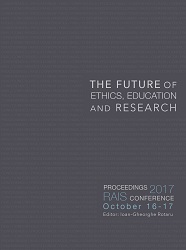How Efficient is to Judge By Standards in a Civil Law Country? A Law and Economics Approach on Brazilian’s Precedent System
How Efficient is to Judge By Standards in a Civil Law Country? A Law and Economics Approach on Brazilian’s Precedent System
Author(s): Edson Antônio Pinto
Subject(s): Law, Constitution, Jurisprudence
Published by: Scientia Moralitas Research Institute
Keywords: Precedent; Civil Law; New Civil Procedure Code; Law and Economics; Biding Decision Making
Summary/Abstract: In civil law countries, the law arises, as a general rule, from a politicallegislative source that, through popular legitimacy, create norms that make up thelegal system, differently from the common law tradition, in which the bindingprecedents are acknowledged as a legal source. However, recently Brazil hasstructured a new system of precedents that imperatively binds all the Judiciary,in order to recognize, from here onwards, the normative force of the Brazilian’sSuperior Courts decisions, in a system very much alike the judge-made law. Albeit,due to this legal innovation, the question that remains is if this is the most efficientform of judicial decision-making, or if the application and interpretation of lawby the Magistrates, in an independent and individual manner, is the best way tojudge. For that reason, the present essay analyzed this new Brazilian’s PrecedentSystem on an approach of Law and Economics, considering the proper institutesof this legal doctrine, and demonstrated that the efficiency gains in this new bindingsystem, justifies its application even if it means, for part of the jurists, the reductionof Judges liberty to adjudicate.
Book: The Future of Ethics, Education and Research
- Page Range: 10-16
- Page Count: 7
- Publication Year: 2017
- Language: English
- Content File-PDF

